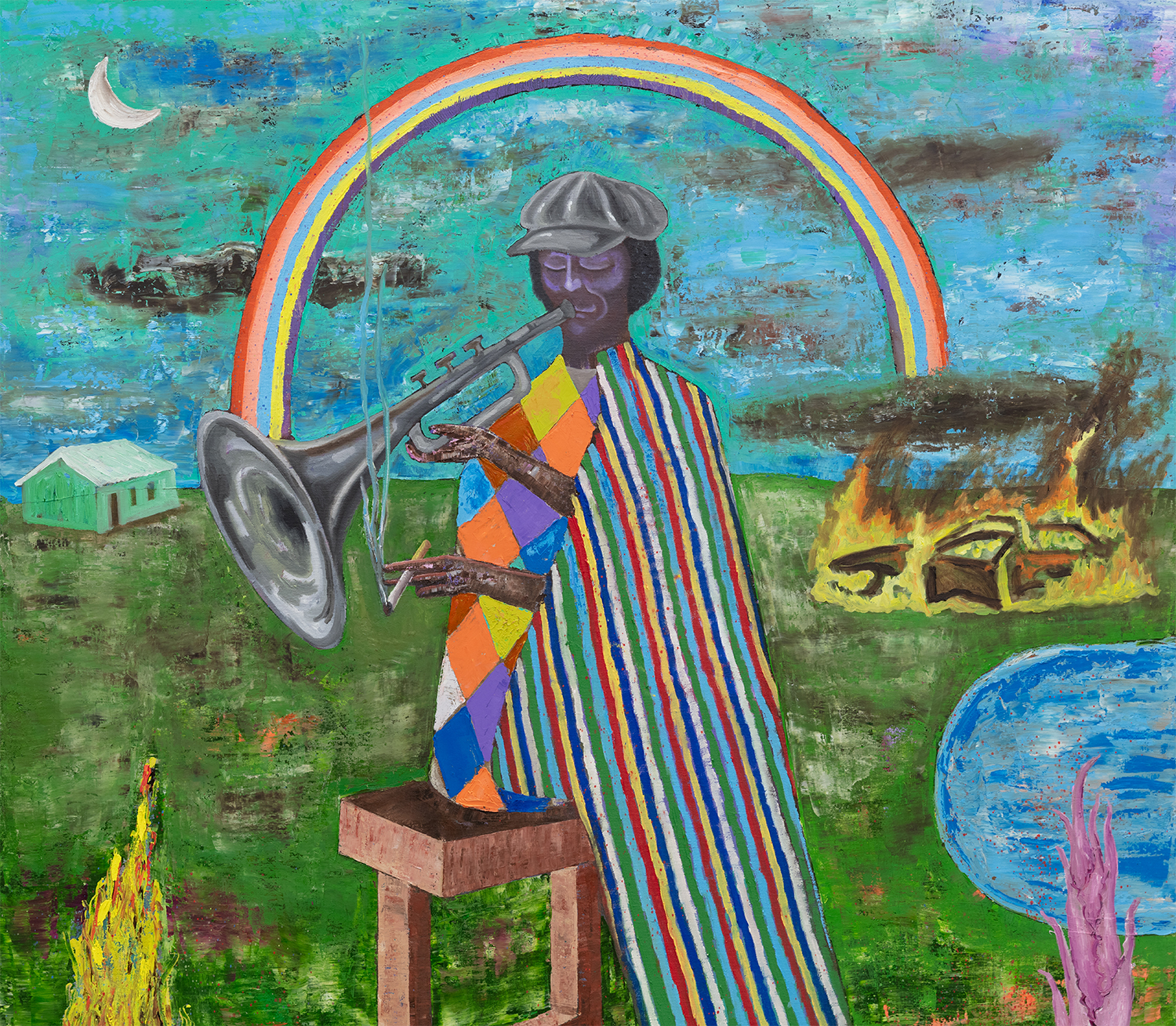Amsterdam
8 June - 27 July 2024Simphiwe Ndzube
After Rain Songs

Simphiwe Ndzube, Grazing in the grass, 2024, oil on linen, detail
STEVENSON is pleased to present After Rain Songs, a solo exhibition of paintings and drawings by Simphiwe Ndzube.
In After Rain Songs, Ndzube returns to his Cape Town studio to create a world between imagination and reality, with distorted figures grounded in landscapes that hold burning fires and lingering rainbows. Here, the artist moves away from his previous sculptural and collage elements and presents a series of oil paintings with new experimentations in colour and texture. Responding to the former Archbishop Desmond Tutu’s idealistic evocation of post-apartheid South Africa as the ‘rainbow nation’, Ndzube uses this term as a starting point to create a contained set of characters and settings that hold the tensions of a nation contending with freedom.
Ndzube continues to explore motifs of freedom in the worlds he creates, employing new and recurring symbols. Within these paintings, fire is seen burning in tyres, scorching cars, or manipulated by singing figures. Elaborating on what drew him to fire’s symbolism, the artist states:
I wanted to sit down with this element of fire, and think about it from protests, to the making of our nation and struggle, and how fire persists as a tool that we use when we revolt against things. If you can’t be heard, fire is a way that you can be heard.
Music features as a key element of Ndzube’s world-building, reflected in how his figures play instruments or share songs either alone or in community. Acutely aware of the role of music in South African formations of identity, the presence of a song hangs over each work – one that we are not entirely privy to. In Revolt Song, a chorus of people sings determinedly, their eyes closed in unison – the burning document held between them does not stir them from their shared musical trance. The pastel rainbow behind them forms around the figures, mirroring the curve of the burning document in the foreground. Where the fire is a prompt for change and signal for attention, the rainbow is its hopeful and lighter counterpart: a promise.
Describing his figures as ‘disjointed, graceful, and imagined’, Ndzube’s ‘rainbow nation’ is filled with fire, rainbows, and figures with strangely placed limbs who embrace their oddities. Loosely pulling from simple visual references, like women in a village pounding maize (Stiff Pap) or Hugh Masekela playing his trumpet (Grazing in the Grass), the works humorously engage local reference points. In After Rain Songs, Ndzube shares his understanding of freedom within a South African context layered with sentimental hope, anguish, and the possibility for change.
The exhibition opens Saturday 8 June, 12 to 2pm.

